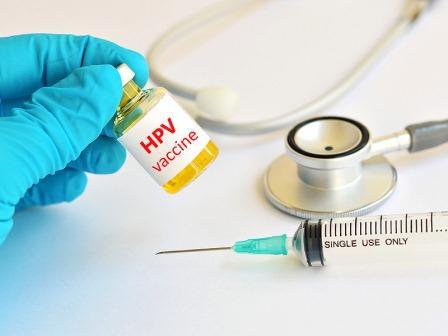
Religious young women are less knowledgeable about a vaccine that guards against several different types of cancer, suggests a new study from Utah.
Compared to women who didn’t practice a religion, those who did were nearly 60 percent less likely to know about the human papillomavirus (HPV) vaccine and about half as likely to have received at least one dose, researchers found.
“One thing you might expect is that they might be less likely to receive the vaccine or they may perceive themselves as having less risk,” said senior author Deanna Kepka, of the University of Utah’s Huntsman Cancer Institute and College of Nursing in Salt Lake City. “I wouldn’t expect them to be less informed about the vaccine.”
HPV is the most common sexually transmitted infection, according to the U.S. Centers for Disease Control and Prevention (CDC). The infection usually resolves on its own without causing health problems, but it can lead to cancer and genital warts if it doesn’t clear up.
HPV infections can cause cervical, vulva, vagina, penis, anus, throat and other cancers.
The CDC currently recommends that boys and girls between ages 11 and 12 get two doses of HPV vaccine. The second dose is given 6 to 12 months after the first shot.
“Compared to other states, Utah has very low HPV vaccination rates, and we know that we are one of the more religious states,” Kepka told Reuters Health.
In 2013, the researchers recruited female patients at the University of Utah Community Clinic, ages 18 to 26, and asked them to complete surveys by mail.
Overall, they had survey responses from 148 women who practiced an organized religion and 178 women who weren’t religious.
About 97 percent of non-religious women had heard of HPV, compared to about 90 percent of religious women.
Similarly, religious women were less likely than their non-religious peers to have heard of the vaccine, to know how HPV is spread and to have their healthcare provider recommend the shots.
“This study is showing that women weren’t even making the informed choice,” said Kepka.
About 50 percent of the religious women said they had received at least one dose of the vaccine, compared to about 73 percent of non-religious women, the researchers reported in PLOS ONE.
About 36 percent of religious women were fully vaccinated against HPV, compared to about 60 percent of non-religious women.
A number of explanations could account for the differences between religious and non-religious women’s knowledge and receipt of the vaccine, said Kepka.
Doctors may make judgments about their patients’ social circles and interests, for example.
Kepka said the pattern is likely similar cross the country.
“We all need to get onboard . . . focus on the facts and integrate (the HPV vaccine) as a part of our healthcare system,” said Kepka.
Source: Reuters
 FR
FR EN
EN AR
AR








